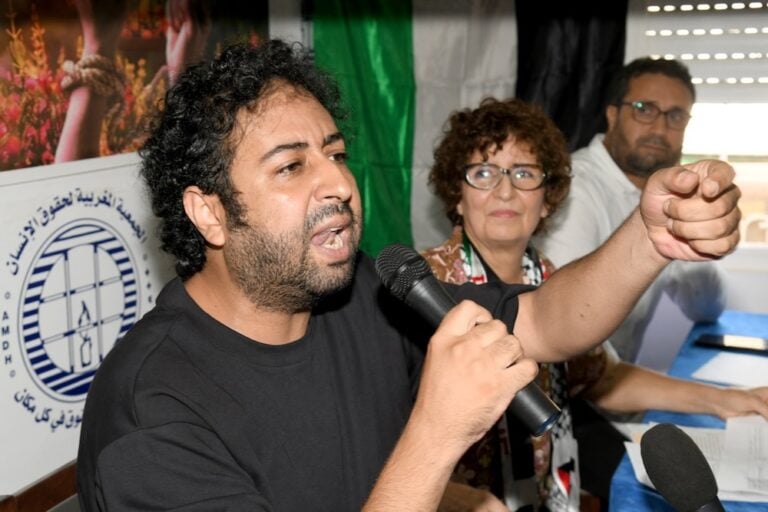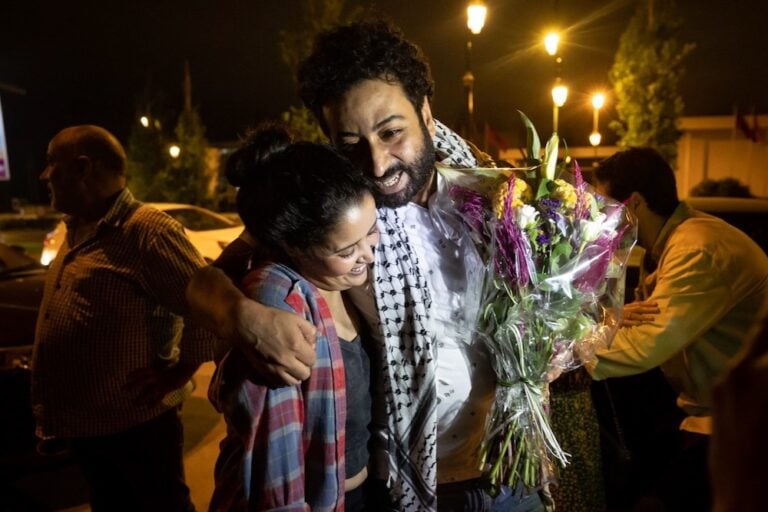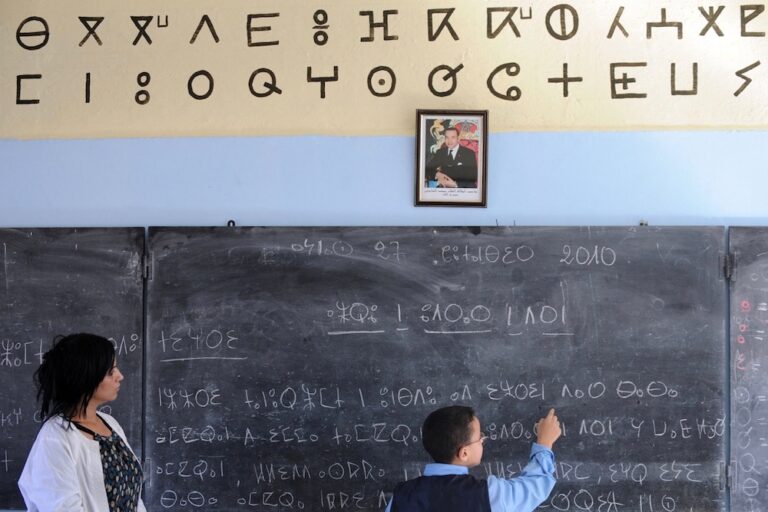The decision to withhold media credentials appears to have been motivated by government displeasure with the news organisation's coverage of the Western Sahara conflict.
(Human Rights Watch/IFEX) – New York, April 5, 2011 – Morocco should stop revoking the accreditation of journalists for foreign media whose reporting displeases them, Human Rights Watch said today. In the past year, the government has closed down the Morocco operations of Al Jazeera television after revoking the accreditation of seven of its journalists, made it impossible for a Rabat-based correspondent for a Spanish daily to work in the country, and delayed for three months the re-accreditation of the Morocco correspondent for the London-based Al-Quds al-Arabi daily.
In each of these instances, the decision to withhold credentials appears to have been motivated by government displeasure with the news organization’s coverage of the Western Sahara conflict. Morocco insists on its sovereignty over the contested territory, despite the refusal by the international community to accept de jure Morocco’s claim. The Polisario Front, a movement based mostly in exile, seeks independence for Western Sahara.
“At a time when King Mohammed VI has pledged sweeping reforms, including stronger human rights protections, Morocco should not place itself among the Arab governments that ban Al Jazeera television,” said Sarah Leah Whitson, Middle East and North Africa director at Human Rights Watch.
The accreditation withdrawals are taking place in a climate of shrinking space in Morocco for independent media. Since January 2010, three of the country’s most outspoken publications have closed, victims of economic difficulties due, at least in part, to political pressures. They are the French-language weekly Le Journal Hebdomadaire, the Arabic weekly Nichan, and the Arabic daily al-Jarida al-Oula.
Hundreds of journalists who work for state-controlled media, notably the television channels and the state news agency, held protests on March 25, 2011, in Rabat and Casablanca, to demand, among other things, greater editorial independence. Their media organizations heavily favor the official positions on politically sensitive issues.
A reporter who lacks accreditation generally has no access to government-organized events such as news conferences, and can be challenged by authorities while reporting on events in public. If the journalist does not otherwise enjoy resident status in Morocco, officials can withdraw the person’s right to live and work in the country.
In 2006, Al Jazeera began broadcasting its nightly North Africa news show, Al-Hasad al-Magharibi (The Maghreb Bulletin), from Morocco. This choice reflected the greater press freedom that prevailed in Morocco compared with its neighbors. But in early 2008, Moroccan authorities suspended permission for broadcasting the show from its territory, citing technical reasons. Then, in June, when the bureau chief, Hassan Rachidi, reported on a claim by a Moroccan human rights organization that the police had killed demonstrators during disturbances that month in the city of Sidi Ifni, authorities revoked his accreditation and filed charges against him. In July, a Moroccan court convicted and fined Rachidi for “disseminat[ing] false information in bad faith that can disturb the public order.” Lacking accreditation, Rachidi could only work a desk job at Al Jazeera, and in January 2009, he left the country for another post with the station.
In 2009, Morocco revoked the accreditation of two more Al Jazeera journalists, Anas Ben Salah and Mohamed Bakkali. Confined to desk jobs and unable to appear on camera, the two were also soon reassigned by Al Jazeera to posts in other countries.
Then, in October 2010, Moroccan authorities revoked the accreditation of all of the remaining Al Jazeera correspondents in Morocco, and on October 29, announced that they were suspending Al Jazeera’s operations in the country on the grounds that the channel had “seriously distorted Morocco’s image and manifestly damaged its greater interests, most notably its territorial integrity,” an apparent allusion to Western Sahara. The five Al Jazeera correspondents who lost their accreditation at that time were Mohamed Fadel, Iqbal al-Hami, Mohamed Faqih, Abdelhak Esshaseh, and Abdelkader Kharoubi.
Rachid Khechana, Al Jazeera’s news director for the Maghreb, told Human Rights Watch that Moroccan authorities had complained frequently to the station about its coverage of Western Sahara, accusing it of adopting a line supporting the Polisario Front.
Since October 2010, Al Jazeera crews and journalists have not been able to report news from inside Morocco or Moroccan-controlled Western Sahara.
The closing of the bureau coincided with a rise in tensions in Moroccan-controlled Western Sahara, after several thousand Sahrawis, early in October, erected a tent encampment outside the provincial capital, El-Ayoun, to protest socio-economic conditions. Moroccan authorities and some Sahrawi leaders met to negotiate an end to the protest, but on November 8, security forces moved in to evacuate the camp’s participants and dismantle it. This led to violent clashes in the camp that spilled over into the streets of El-Ayoun.
Morocco initially denied foreign media access to El-Ayoun to report on the confrontation. On November 11, the Communications Ministry announced that Morocco was revoking the accreditation of Luis De Vega, Morocco correspondent for the Spanish ABC daily since 2002, because of his “consistent disrespect for the rules of the profession.”
( . . . )


